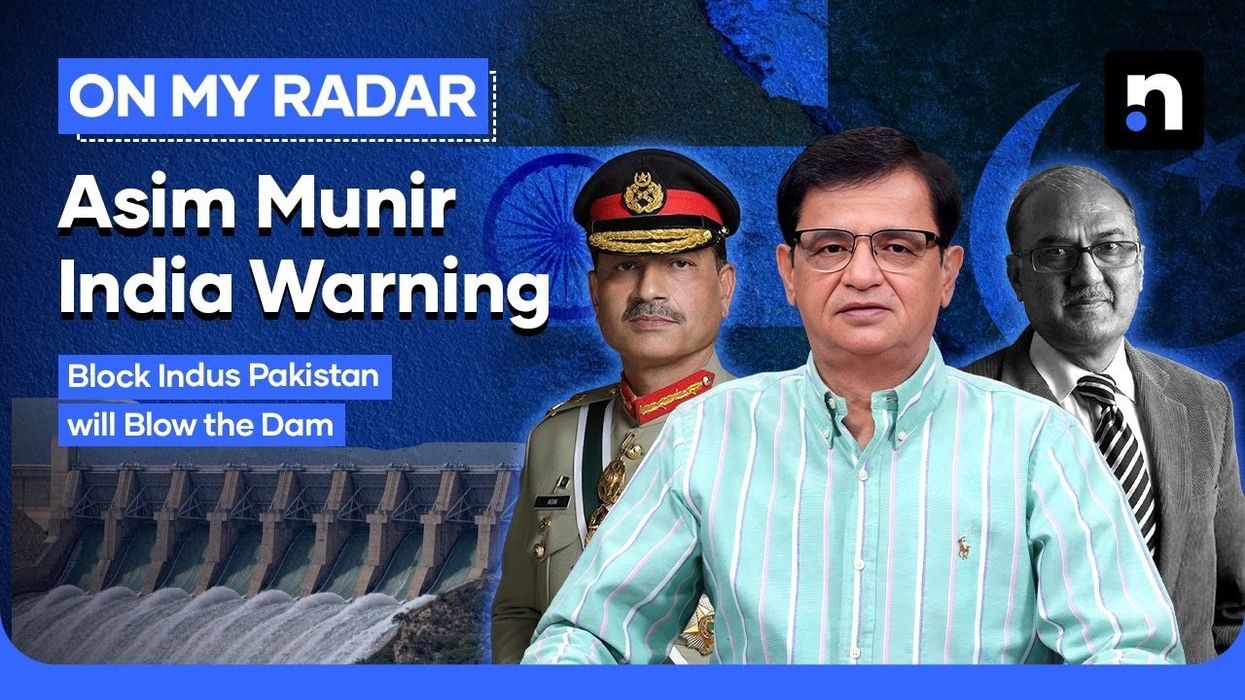Pakistan’s army chief issues strong warning to India amid warming US-Pakistan ties
Kamran Khan says Asim Munir warned India any dam to block the Indus River would be destroyed
News Desk
The News Desk provides timely and factual coverage of national and international events, with an emphasis on accuracy and clarity.
Pakistan’s diplomacy is on a high, with the country’s flag flying proudly on the global stage.
Kamran Khan, in his vlog, says about six weeks after U.S. President Donald Trump hosted Pakistan’s army chief at the White House, Field Marshal Syed Asim Munir made his second key strategic trip to the United States last week.
It was his second visit in two months to the U.S. Central Command’s headquarters in Tampa, Florida, where he held far-reaching strategic talks with American military leadership. Munir attended the retirement and command change ceremony of outgoing CENTCOM commander Gen. Michael Kurilla and met with the new commander for detailed introductory discussions.
While addressing Pakistani-American community in Tampa, Florida, Munir addressed Pakistan’s security challenges, particularly what he described as emerging military threats from India in the aftermath of Pakistan’s recent victory in the war with its neighbor.
His remarks included a direct warning to India over its reported plans to build a dam to block the Indus River. “The Indus River is not Indian family property,” Munir said, according to Dawn. He added that Pakistan has the resources to destroy any Indian design aimed at stopping the river’s flow.
Khan noted that Munir’s focus during the U.S. trip was on strengthening ties with Washington. Munir said a new and “comprehensive” trade agreement between Pakistan and the United States was in its final stages.
This is not the first time Munir has taken a firm public stance on India, particularly regarding Kashmir. He made similar statements in April at a major public event.
His latest remarks came nearly three months after the Pakistan-India war, as Indian leaders revisited wartime narratives. In recent days, Indian Prime Minister Narendra Modi, Army Chief Gen. Upendra Dwivedi, and Air Chief Marshal A.P. Singh issued what Khan described as “ridiculous” statements about the conflict.
Singh claimed India had destroyed five Pakistani fighter jets, an F-16 hangar in Jacobabad, command-and-control centers in Muridke and Chaklala, and at least six radars. Khan questioned why India took three months to disclose these claims, suggesting the delay undermined their credibility.
Khan also recalled that Singh previously blamed the Modi government for the Indian Air Force’s failures during the war. Similar contradictions appeared in remarks by Dwivedi, who recently said the military had been given a free hand to retaliate after the Pahalgam incident.
In contrast, at a seminar in Jakarta last month, Indian Navy Capt. Shiv Kumar admitted losing fighter jets because the Modi government barred attacks on Pakistani military and defense installations.
Khan suggested these conflicting statements may have been prompted by Trump’s recent claim—his 40th on the matter—that six planes were shot down during the war, up from his earlier count of five, aligning with Pakistan’s account.
“Falsehood has no legs,” Khan said, adding that neither Indian officials, their media, nor the Modi government had convinced the world or their own people of their narrative since the Pahalgam attack.











Comments
See what people are discussing